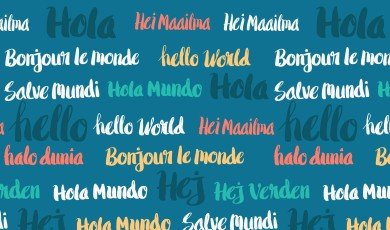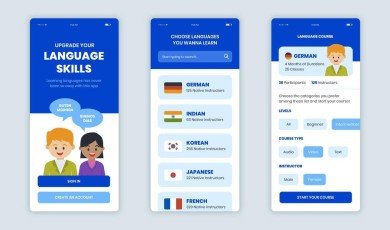
In our increasingly globalized society, healthcare is no longer confined by geographical boundaries. Patients come from diverse backgrounds, each bringing unique cultures, experiences, and — perhaps most crucially — languages. For those facing a language barrier during medical consultations, the stakes are life-altering. Miscommunication in a clinical setting can lead to misdiagnosis, ineffective treatment, and even dangerous clinical errors. That’s where the language of care comes into play, bridging the gap between patients and healthcare professionals through expertly delivered medical interpretation services .
This post delves into the importance of nuanced, culturally aware medical translation and interpretation, the role of technology, and how quality assurance ensures patient safety and comfort at every stage.
Why Language Matters in Healthcare
Healthcare is as much about communication as it is about medicine. Exchanging accurate health information forms the basis for diagnosis, treatment, and patient care. When language impedes this flow, outcomes can deteriorate quickly. Language barriers can result in misunderstandings of dosage instructions, incorrect conveyance of symptoms, and a lack of trust between patients and providers.
With millions of people seeking treatment in countries where their language isn’t spoken by staff, the demand for professional medical interpretation services and translation services has skyrocketed. In this context, ‘translation’ isn’t only about word-for-word conversion; it’s about conveying medical terminology, emotional context, and cultural sensitivity — all critical to the language of care.
The Distinct Challenges of Medical Translation
Medical translation is a highly specialized field for good reason. Unlike general translation, mistakes or ambiguities can have grave consequences. Several unique factors make medical translation and interpretation especially complex:
- Technical terminology: Medical lexicons are vast, ever-evolving, and filled with technical jargon. Translators and interpreters must have a deep understanding of healthcare concepts in both source and target languages.
- Patient confidentiality: Healthcare data is sensitive. Translators must adhere to strict regulations (such as HIPAA in the U.S.) and follow robust data security protocols.
- Cultural differences: Attitudes toward health, illness, and medical procedures can differ dramatically across cultures. Translators must not only be fluent in language but also in the cultural nuance to avoid misunderstandings.
- Legal implications: Incorrect translations in the medical field can have legal ramifications for healthcare providers. Qualified translators understand the burden of accuracy and carry insurance or certifications to support their work.
Ultimately, the goal of expert medical translation is threefold: accuracy, clarity, and empathy.
Medical Interpretation Services: Bridging the Oral Gap
While written translations are critical for patient records, labels, and pharmaceutical materials, spoken communication forms the basis for most doctor-patient interactions. This is where medical interpretation services step in. Interpreters are the real-time voice between patients and practitioners — whether over the phone, via video, or face-to-face.
The interpreter’s role extends beyond translation; it requires quick thinking, emotional intelligence, and unwavering impartiality. They must cater to medical emergencies, everyday consultations, and sensitive conversations with the utmost integrity. An interpreter’s presence puts patients at ease, empowers them to be honest about their symptoms, and reassures medical staff that every word is relayed faithfully and professionally.
Technology in Modern Medical Translation
Technology is revolutionizing how medical translation and interpretation services are delivered. Telemedicine platforms are integrating instant translation tools, electronic health records are being compiled in multiple languages, and Artificial Intelligence is making real-time interpretation more scalable.
However, despite these advancements, human expertise remains irreplaceable. Machines may translate words, but only trained professionals can grasp the subtle emotional cues and cultural contexts of healthcare conversations. For critical interactions — such as surgical consent, psychiatric evaluations, or end-of-life consultations — a skilled human interpreter or translator remains the gold standard.
For providers seeking efficient integration of technology and human expertise, specialized companies offer flexible solutions, from remote video interpretation to emergency document translations.
Quality Assurance in Medical Translation Services
Given the unique demands of medical translation, strict quality assurance protocols are non-negotiable.
Leading medical translation service providers implement multi-layered review processes:
- Selection of subject matter experts: Only linguists with medical backgrounds or proven industry experience are chosen for these sensitive translations.
- Double-checking and peer reviews: Each translated document is checked for terminology consistency and reviewed for accuracy by another professional.
- Certification and compliance: Providers work within legal standards, offering certified translations if required for regulatory bodies.
- Ongoing training: Translators and interpreters regularly update their knowledge base to stay abreast of medical advancements and evolving terminology.
This rigorous approach extends to both document translation and spoken interpretation, providing peace of mind for patients and practitioners alike.
Cultural Competency and the Language of Empathy
Above technical accuracy, the language of care demands genuine empathy. Patients often discuss their most intimate worries and fears with healthcare providers. Translators and interpreters must respect cultural norms around personal space, privacy, and medical disclosure.
For example, some cultures may avoid direct discussion of terminal illness, while others expect full transparency. Expressions of pain, attitudes toward mental health, and family involvement in care are also deeply influenced by cultural background. In all these cases, the translator acts as a cultural bridge, ensuring the patient feels heard and respected, not just linguistically understood.
Companies like PoliLingua understand this need for empathy and nuance. They employ linguists who are native speakers and culturally competent, ensuring every translation is not just correct, but caring.
How to Choose a Medical Translation Service
When selecting a translation provider, healthcare organizations and individual practitioners should look for:
- Proven expertise: Seek out agencies with a track record in medicine, with references and industry specializations.
- Compliance with data security protocols: Ensure the provider follows all patient confidentiality guidelines and international standards.
- Comprehensive services: Providers should offer both document translation and medical interpretation services, available 24/7 if needed.
- Multilingual support: The best agencies will cover a wide range of languages, including support for rare or regional dialects.
- Client support and responsiveness: Clear communication and quick turnaround times are essential, especially for urgent medical cases.
The Power of Language in Healing
Language isn’t just a vehicle for information — it’s a tool for care, compassion, and healing. In healthcare, where accuracy and empathy can mean the difference between life and death, professional medical translation services and interpretation are indispensable. When delivered with sensitivity, expertise, and rigorous quality standards, these services ensure that every patient receives the care they deserve, no matter what language they speak.
As we move forward, the language of care will remain a unifying force in global healthcare, building trust and connection even in the most challenging moments. By choosing experienced providers committed to both linguistic precision and heartfelt communication, healthcare organizations can continue to break down barriers to treatment and promote the health of our diverse, interconnected world.








